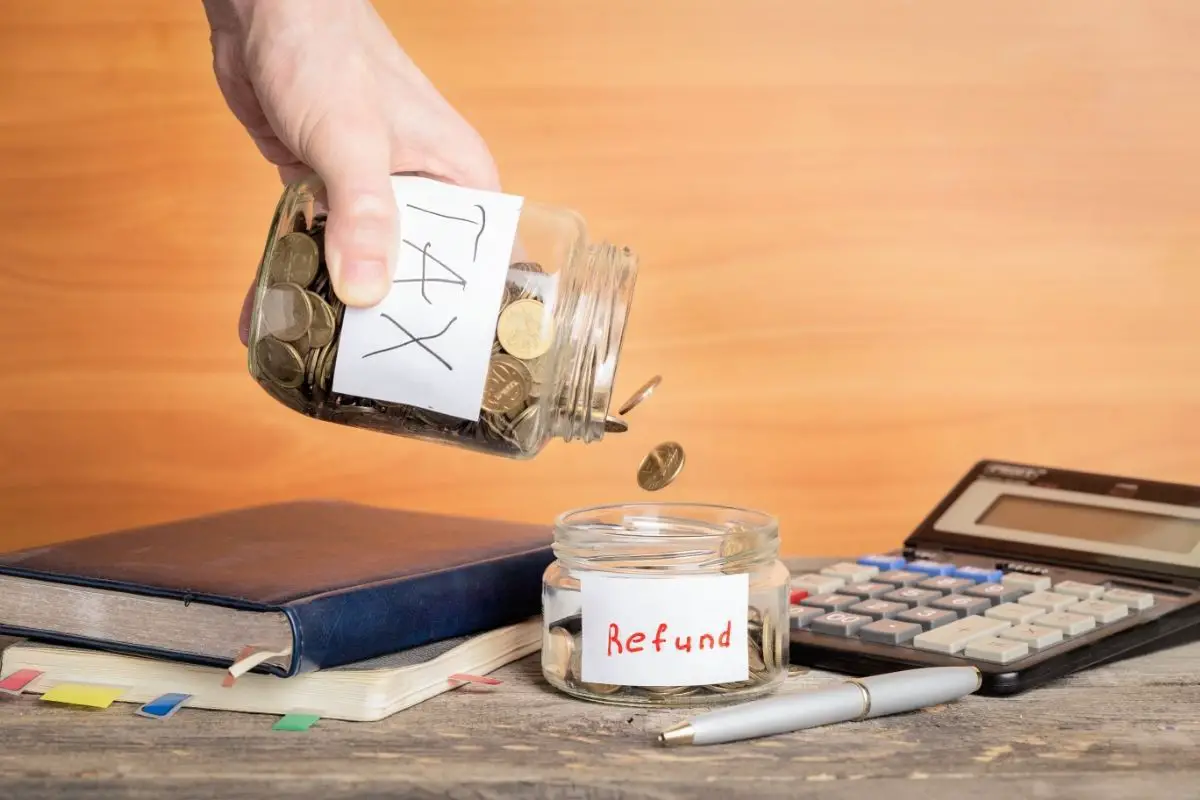For people who have been to prison, getting their life back on track when they are released can be very difficult due to a loss of some civil rights.

Every year, hundreds of thousands of people are put in jail all over America, and each of them will struggle to reintegrate when they are released – whether that’s soon after or after a while.
Among the struggles that felons face is the prospect of securing a job, and therefore securing from that income a place to live. You may be wondering, in all this, whether they can get tax refunds?
We’ve got the answers for you. In our informative article below, you’ll find out whether felons can receive refunds on their tax, as well as other details related to the matter.
Before we begin, though, we’ll simply answer your question: a felon can sometimes receive a tax refund. However, this may not always be the case, and there can be factors which determine whether they do or not.
In some instances, they won’t even receive a tax refund that they are actually eligible for, and we’ll get into that later.
Contents
What Is A Tax Refund?
A tax refund is when you are reimbursed for paying too much tax, and the federal government gives you back the amount that you overpaid by.
The frequent cause of people overpaying their taxes is because their employers have withheld too much from the paychecks, to such an extent that is estimated almost 3/4s of taxpayers suffer this excess of withholding.
Tax refunds are not bonuses from the government, merely accurate repayments.
However, employers withholding too much from your paycheck is not the only cause of people getting tax refunds.
For example, you may be a self-employed freelance worker who has to file quarterly estimates of your tax, and you have overpaid in order that you don’t accidentally underpay.
Another reason may be that you incorrectly filled out the W-4 form from the IRS (Internal Revenue Service, who collect tax). This form is used for estimating withholding amounts from paychecks, and you could wrongly fill it out.
A third cause could also be related to personal mistakes, where you have forgotten to include the correct changes that affect your tax deductions.
We mentioned the Form W-4 from the IRS earlier. Some people deliberately fill out that form for an excess amount in order to receive a high refund.
Are Felons Exempt From Paying Taxes?
You may be wondering whether a felon is actually eligible to pay tax in the first place, or whether they are exempt from doing so. They are not exempt.
However, that doesn’t mean that they’ll find it easy to pay the taxes that they do have to pay. Due to prejudice, lots of felons will find it difficult just getting a job in the first place.
Far too many employers will see that they have a criminal record and overlook them for the job, even if they were previously qualified for it already.
Some felons will have earned money in prison, but this is never enough money to qualify them for filing taxes. Without filing, they won’t need any refunds.
When they are released and struggle to find a job, it will be hard for felons to have an income and to afford their taxes. Paying taxes is a civic responsibility, which means that everyone other than exempt people have to do it.
But who is exempt? There are a handful of people who are exempt from paying taxes.
- Extremely low-income earners: when their income is lower than the standard deduction, they don’t need to file taxes.
- Citizens who work abroad: people working and living overseas don’t have to pay US tax.
- Taxpayers with many deductions: deductions such as medical bills make you exempt, allowing you to claim those bills as un-refunded medical expenses.
- Taxpayers with many dependents: if many depend on you (for example, you have lots of children) then you may not be eligible for taxes because you are able to claim child tax credit.
- Nonprofit organizations: these are places like religious institutions, hospitals, universities, humanitarian organizations, and more.
Do Felons Get Tax Refunds?
It’s now time to go more in depth on the main topic. There are instances where a felon might be eligible for a tax refund, but they are not paid it. This is because of restitutions.
When a felon owes the government money in restitution, the money that they owe is automatically taken away from the tax refund, meaning that a felon can end up with no refund if their restitution was sufficiently big.

The IRS can legally use a felon’s tax refund amount to pay off the same felon’s restitutions, and they keep track of felons that do owe it.
Only when you have paid off the whole restitution amount, will you be able to receive future tax refunds. However, only about 5% of felons do pay it off, leading to billions of dollars in restitution owings.
Tax Refunds That Are Unclaimed
However, surprisingly a lot of that 5% of felons who pay off their restitution don’t actually claim their tax refunds. Millions of dollars are left unclaimed each year, and this mistake can be for a number of reasons.
For one, felons may have moved address, and their mail with the check in has gone to their previous listed one. On a similar note, some mail is lost, the paychecks ending up in the wrong places.
Another reason is that the felon may have a new bank account number. This will only be an issue if their refund is delivered by direct deposit.
If your check is missing, contact the IRS.
Final Thoughts
Felons can receive tax refunds, but it depends on circumstances.





